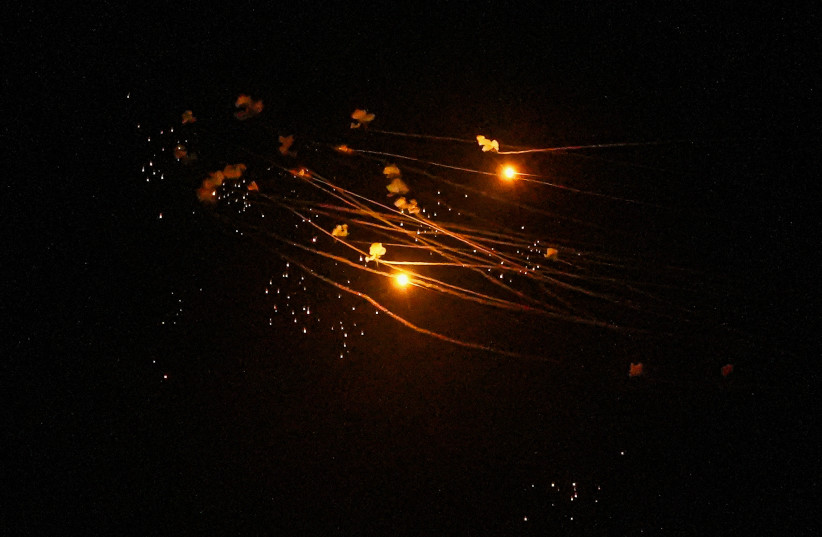Around five rockets were launched from Lebanon into the Upper Galilee in northern Israel overnight into Saturday after residents experienced 38 rocket and drone infiltration alerts since Friday morning.
Due to the escalating security situation, regional councils have instructed residents to stay near protected areas and limit movement in the region.
"Residents should minimize movement, avoid gatherings, remain close to shelters, and heed the Home Front Command’s warnings," officials in the Upper Galilee told locals. Similar instructions were issued to residents of the Golan Heights and the Galilee panhandle.
On the Israeli side, rhetoric has intensified regarding a possible war with Lebanon, especially from the Northern Command. Defense Minister Yoav Gallant this week sent a message to Hezbollah, clarifying that Israel's security focus is shifting northward.
"We are moving the center of gravity north to complete our missions in the South," he said. "I’ve seen many fighters who thought we were only talking, and after a week, I saw them inside the battlefield – we will know when to deploy you." Gallant made these remarks during a drill simulating ground combat in Lebanon.

Amos Hochstein to arrive from US on Monday
Amid the rising tensions on both sides, US President Biden’s senior adviser, Amos Hochstein, is expected to arrive in Israel on Monday for talks on Lebanon. White House spokesman John Kirby stated that Hochstein’s visit is part of the Biden administration’s efforts to prevent the opening of a second front.
These developments come after a warning from a senior American official about the possibility of a full-scale war between Israel and Hezbollah in Lebanon.
The official noted that such an escalation could have catastrophic and unpredictable consequences. "Some think that we could just go to war, destroy Hezbollah’s missile arsenal, and everything will be fine," the official said, referring to scenarios in which Israel shifts forces from Gaza to launch a preemptive strike against Hezbollah. "It’s not that simple. There’s no magic solution. You can’t eliminate the other side. Israel may pay a heavy price without achieving its objectives in the end," he added, stressing that a war in Lebanon would likely lead to international intervention to secure a diplomatic resolution similar to what is currently being discussed.
"There’s no such thing as a controlled war. It’s not a game," the official said during the MEAD conference in Washington. "I don’t doubt the IDF’s capabilities, but both sides would face severe consequences. Those in Israel pushing for war against Hezbollah to bring northern residents back to their homes must consider that in such a scenario, many Israelis may die, and others won’t have homes to return to."
This week, Hezbollah hit a residential building in Nahariya as part of a UAV assault on the North in retaliation for an Israeli-attributed strike in Syria.
The Lebanese organization has expanded its attacks on non-evacuated areas in the past month, with assessments suggesting that Hezbollah leader Hassan Nasrallah is testing Israel’s restraint and growing bolder.
"The most influential factor in the increasing attacks is the elimination of senior Hezbollah figures," said Dana Pollack from the Alma Center, who analyzed the data. "Additionally, Hezbollah raises the intensity of retaliatory strikes as the war drags on."
The relative drop in attacks on non-evacuated areas in August (45) compared to July (51) is attributed by Alma to a preemptive IDF strike on August 25 that disrupted Hezbollah's planned retaliation for the killing of Fuad Shukr.
